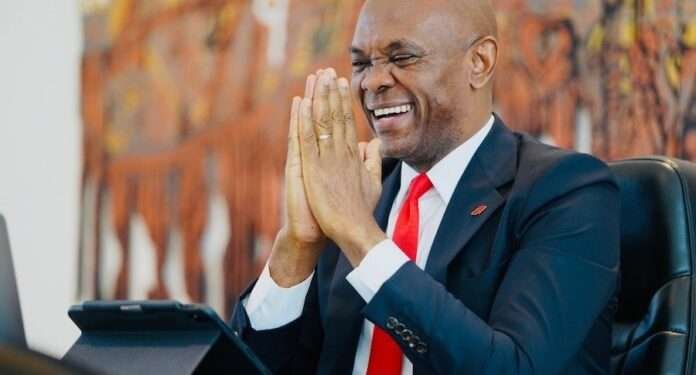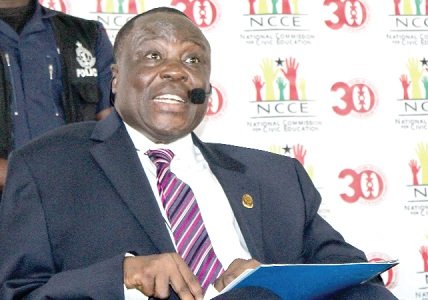Pressure is mounting on businesses across Ghana as fresh warnings emerge that the government could introduce direct price regulation if traders continue to resist calls for price reductions.
The Importers and Exporters Association of Ghana has raised alarm that public sentiment is rapidly shifting against businesses that refuse to adjust prices despite clear improvements in the economic environment.
With the Christmas season approaching and consumers already stretched, the Association insists that traders must demonstrate fairness and transparency or risk triggering state intervention.
RelatedPosts
Cedi Stability and Easing Inflation Shift the Debate
After months of turbulence marked by exchange rate volatility and rising inflation, the economic outlook has shown notable improvement in recent weeks. The cedi has stabilised, forex has become more accessible, and port charges have eased.
These developments, according to the Importers and Exporters Association, signal an important moment for traders to offer relief to consumers.
Executive Secretary of the Association, Samson Asaki Awingobit, argues that the business community has no justification to maintain elevated prices under the current conditions. He emphasises that economic indicators which previously prompted price increases have now shifted in favour of the consumer.
“I have no qualms. I have called vigorously that business community should reduce the prices to the citizenry to also enjoy the Christmas.”
Samson Asaki Awingobit
Awingobit recalls how traders quickly adjusted prices upward when the dollar surged. “Because August when there were hitches in the dollar you witnessed the cry,” he states, pointing out that circumstances have changed significantly.
With forex now available at banks and port clearances occurring at “GHS10.9,” he questions why businesses continue to hold prices high. In his view, the hesitation is unjustified and detrimental to the trust between businesses and the public.
Risk of State Intervention
Awingobit’s warning is clear. If traders refuse to reduce prices in line with improved economic conditions, the government may be compelled to step in. He notes that public frustration is rising and that the environment is ripe for legislative action on price controls.
“If you are there and you refuse to reduce your prices and the Minister for Trade moves to parliament today with an LI that she wants to regulate prices she will get support from Ghanaians.”
Samson Asaki Awingobit
According to the Association, traders risk losing not only customer goodwill but also the flexibility to set their own prices. Awingobit stresses the need for businesses to act responsibly and avoid forcing the government into playing a more direct regulatory role.
He urges the business community to think ahead. “We should not wait for that time to happen. We should be reasonable and rational in our promise,” he says.
The warning from the Importers and Exporters Association comes at a time when government itself is seeking answers to persistently high prices across various sectors. On Tuesday, November 11, 2025, Trade Minister Elizabeth Ofosu-Adjare met with major trade groups including the Ghana Union of Traders Associations, spare parts dealers and transport operators.
The meeting highlighted concerns over irregular price movements despite the cedi’s steady gains over the past nine months. Government officials questioned why prices, particularly in the spare parts market, have failed to reflect the stabilising economy.
Traders responded that while most car parts have seen some reductions, parts for Sprinter buses remain unusually expensive due to soaring demand and limited supply.
This explanation, however, has not fully satisfied consumer groups or the government. The persistence of high prices, even where supply conditions have improved, has deepened suspicion that artificial markups are playing a significant role in driving up costs.
The Middlemen Problem
Another challenge raised during the meeting was the role of intermediaries, widely known as “Affairs,” who act as middlemen in the purchase of spare parts. Many transport owners rely on these intermediaries, who often inflate prices significantly before selling to end users.
This system has created distortions in price formation and contributed to escalating transport fares, which in turn affect the broader cost of living. The government is now considering measures to address the influence of these middlemen as part of its broader effort to curb unnecessary price hikes.
The broader message emerging from both the government and the Importers and Exporters Association is straightforward. The business community must align its pricing practices with current economic realities. With inflation moderating and the cedi showing rare stability, there is a clear expectation that traders should adjust prices downward.
As the Christmas season draws near, consumers are looking for relief, and the government appears increasingly prepared to act if businesses fail to respond voluntarily. The Association insists that the moment offers an opportunity for businesses to rebuild trust and demonstrate fairness.
READ ALSO: Former Tamale Central MP Urges Swift Justice in High-Profile Corruption Trials























